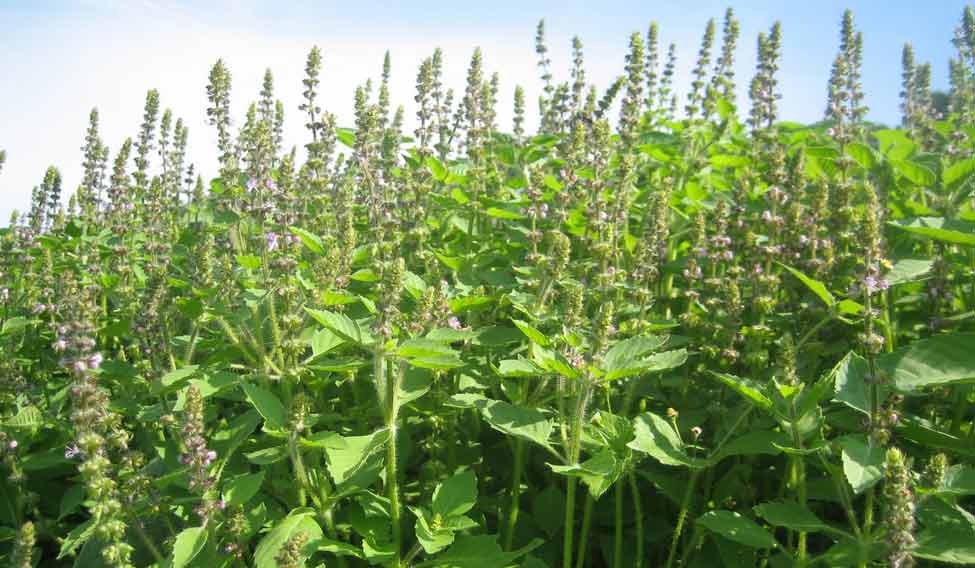Indian scientists have deciphered the entire genetic make-up of Tulsi, a herb widely used for therapeutic purposes. The genome map will help in making new medicines using the plant.
A multi-institutional team led by Sowdhamini Ramanathan from the National Centre of Biological Science, Bengaluru revisited the age-old knowledge of the plant and its medicinal effects in their laboratories.
The plant synthesises a wide range of bioactive compounds, known for their anti-bacterial, anti-fungal, anti-pyretic and anti-cancer properties.
These compounds are metabolites, compounds that are a by-product of plant metabolism, typically used for plant self-defence. These metabolites are very poorly understood because of lack of genomic information.
Sowdhamini and team have produced the first draft genome of O.tenuiflorum Krishna subtype, which is an important step in understanding and identifying the genes responsible for production of metabolites with medicinal properties.
"The sequence reveals the interesting pathways used by Tulsi to make ursolic acid a medically important compound.AIf one could now use modern synthetic biology techniques to synthesise ursolic acid, it would be of great benefit," said S. Ramaswamy, one of the researchers.
Sowdhamini said, "This is the first report of draft genome sequencing of a plant species from NCBS and we hope to do more."




